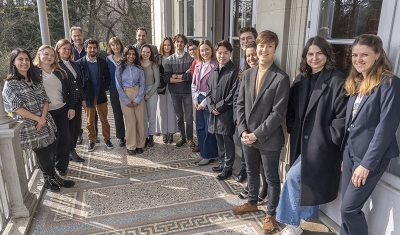Special Tribunal for Aggression: Worth the Risk(s)?
Geneva Academy Talks


Adobe
The Russian invasion of Ukraine has triggered heated debate on whether the international community should strive for the establishment of a 'Special Tribunal for Aggression'.
Such a tribunal would arguably be needed given the lack of competency of the International Criminal Court (ICC) to adjudicate cases regarding the crime of aggression with regard to the acts currently committed in Ukraine, the obstacles to impose criminal justice for aggression in domestic national jurisdictions due to immunities, and the need to send a powerful deterrent message to prevent the future instances of aggression. However, the idea of such a new tribunal for crimes against peace has also been accompanied by criticism, specifically related to the undesired effects of selectivity of criminal justice and legitimacy of such a tribunal, issues with structural cooperation with the ICC, and difficulties to guarantee the independence of the special tribunal if the evidence for its trials is collected by national (in particular Ukrainian) courts.
This IHL Talk will explore various issues related to the potential establishment of a 'Special Tribunal for Aggression' and will discuss whether such a special tribunal is the best or at least the most appropriate option to make sure that the crime of aggression does not go unpunished.
Panelists will notably address the following points:
- General suggestions put forward regarding different models of the special tribunal, specifically hybrid and ad hoc models as well as their implications in terms of collaboration with domestic courts and the ICC
- Question of immunities (different views and arguments regarding personal and functional immunities with regard to the crime of aggression and which of the possible models would be best suited to overcome this procedural limitation)
- Risks and dangers, selectivity and legitimacy of the 'Special Tribunal for Aggression', in Europe and beyond, including by looking at historical narratives.
Moderation
- Ana Srovin Coralli, Teaching Assistant, Geneva Academy
- Francesco Romani, Research Fellow, Geneva Academy
Panelists
- Nataliia Hendel, Research Fellow, Geneva Academy and Professor of international law, International Humanitarian University in Odesa, Ukraine
- Patryk Labuda, Research Fellow, University of Zurich
- Lorenzo Palestini, Lecturer, Geneva Center for International Dispute Settlement
About IHL Talks
The IHL Talks are a series of events, hosted by the Geneva Academy, on international humanitarian law and current humanitarian topics. Academic experts, practitioners, policymakers and journalists discuss burning humanitarian issues and their regulation under international law.
Video
Special Tribunal for Aggression: Worth the Risk(s)?
The Russian invasion of Ukraine has triggered heated debate on whether the international community should strive for the establishment of a 'Special Tribunal for Aggression'. Panelists explores various legal issues related to the potential establishment of such a tribunal and discussed whether such a special tribunal is the best or at least the most appropriate option to make sure that the crime of aggression does not go unpunished.








